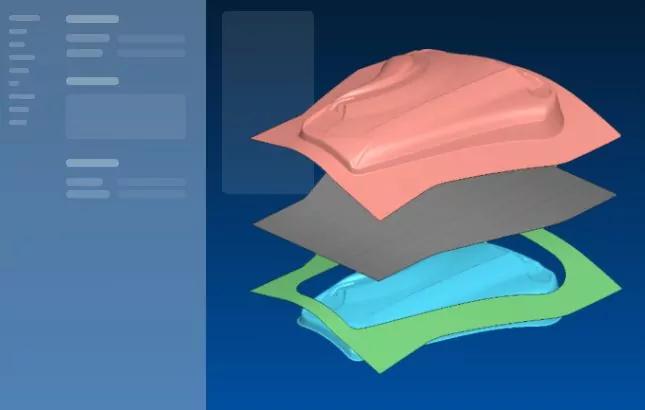
If you are new to sheet metal forming simulation software, you may be wondering what it can do for your business and your customers.
The software truly offers multiple benefits that can enhance or complement sheet metal forming. Sheet metal manufacturing shops are typically small- to medium-sized businesses that are looking to be as efficient as possible to maintain profitability and growth.
Sheet metal forming simulation software could be the solution needed to overcome these industry challenges.
Sheet Metal Forming Challenges and Solutions
As an industry professional, you are faced with many sheet metal forming challenges, including wrinkling, cracking, thinning, and spring back. Historically, these were considered unfortunate, somewhat inevitable evils that occasionally occurred in the process of sheet metal forming.
Today’s simulation software, however, can minimize the number of times these issues occur, helping to increase efficiency and reduce wasted time and money.
The software enables users to simulate sheet metal forming on a computer. The simulation process would still require engineering expertise and a model of the real process that is created with extreme precision. Through this technology, users can then identify potential problems, such as cracking, as it is formed through the simulation.
As the simulation progresses, they can optimize various elements in order to perfect the prototype. On the other hand, they may determine that they need to develop a different solution completely. Either way, the simulation reduces the costly expense of developing an imperfect prototype.
Benefits of Sheet Metal Forming Simulation Software
With simulation software, you can essentially perfect the prototype before you even begin to make it. Benefits of sheet metal forming simulation software include:
- The ability to evaluate dies, processes, and blanks before actually building the prototype tooling
- Reducing unnecessary expenses associated with faulty prototypes
- Being able to assess the profitability and feasibility of a project before quoting
- Providing more accurate quotes for increased profitability
- Being able to provide clients with quotes faster, which may increase win rates in a competitive bidding scenario
- Being able to provide quotes on more projects due to the fact that you don’t have to pass up the opportunity due to unknowns
The intuitive, interactive system guides users through the process. By simulating every detail during the design stage, users can feel confident in the results.
Users can unfold designs through the software in order to estimate sizes accurately, as well as predict trim lines. They also can generate formability results and analyze die surfaces, scrap flow, and sheet metal transfer. The simulation software may even allow users to bypass soft tooling completely through virtual prototyping, which lowers tryout time and increases productivity.
Another significant benefit of sheet metal forming simulation software is the ability to assess timelines, which will in turn help manufacturers’ clients plan their own timelines accurately.
Source: https://www.eta.com/sheet-metal-forming-simulation-benefits/




COMMENTS